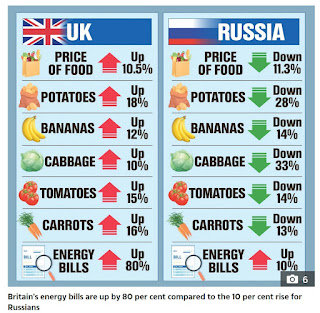(Commentary posted by Roger Erickson.)
What are Mass Delusion events? They are simply the institutional momentum of freedback waves traveling through a communicating network, and they can appear in diverse forms. They are the sum of communicability, shared relevance, emotional appeal, and underlying conditions, e.g., stress & propensity to panic. The phenomenon is not new. Transiently attractive rumors are as old as human culture.
However, the remarkable 20th Century resurgence of the use of Mass Delusion events as tools of Politics and Empire, can be significantly attributed to 3 little books that launched an industry dependent upon unprecedented breadth and speed of feedback methods, all of which, unfortunately, produced conditions where accelerating communication methods could initially be misused as often or more often than they were adaptively used.
Walter Lippman's 1921 book, Public Opinion
Edward Bernays 1923 book, Crystallizing Public Opinion
Edward Bernays 1927/1928 book, Propaganda
(hat tip to Derryl Hermanutz)
Propaganda, of course, started with the first human tribal grouping.
Propaganda and "civilization" (organized mass society) go hand in glove, as Lippman pointed out. Recruitment to at least some like-minded narratives is necessary for organization. Like anything, consensus is only as valuable as we make it. Natural selection still proceeds, at cultural as well as individual levels.
Any useful tool can also be misused. Group recruitment becomes mal-adaptive the moment it is separated from full aggregate feedback, thorough discussion and Deliberative rather than rushed decision-making.
The history of biology, business & warfighting all prove this conclusion.
Biology involves constant selection among multi-factorial combinations.
Business involves rushed decisions based upon insufficient data, but neither too rushed nor too slow. The survivable balance between immediate/local revenue & results (ILR) and delayed/distributed costs & consequences (DDC) produces the mythologized "Market Forces" - titrated as a dynamic ILR/DDC ratio.
1) Group success "follows the quality [including tempo] of distributed decision-making." [Note: the USMC changes this link periodically. If broken, google "USMC Warfighting pdf"]
2) Groups "generate tempo by decentralizing decision-making."
[Note: the USMC changes this link too. If broken, google "USMC Campaigning pdf"]
3) Groups decentralize decision-making by distributing resources well enough to allow distributed exploration of dynamic options.
(It's called liquidity or recombination. We teach one another, distribute resources where useful, & give time for study & practice - all to generate more innovation. Species innovate by exploring the unpredictable value generated by sexual recombination. Cultures innovate by exploring options-recombination, which requires unrestricted liquidity, NOT hoarding of liquidity units.)
4) Groups continually re-prioritize decentralized decision patterns, by distributing feedback well enough and soon enough to continuously re-align all actions with net benefit.
Those 4 points, and you could argue the Theory of Evolution, are recognizably a re-statement of the US Declaration of Independence & the US Constitution. Systems modeling.
This ain't rocket science. Ancestors of every surviving species figured this out operationally, over 1 million years ago. All homo sapiens should know this by 5th grade, not just members of sports, music, dance or drama teams.
So WHY is it that we repeatedly allow unworkably small cabals to try to rule increasingly larger and more complex populations via diverse versions of Central Planning? What's the difference between a Central Committee run by Royalty, Oligarchs, Fascists or Bolsheviks? A dead end, by any other name, still stinks as badly.
If none of us are as smart as all of us, there's an obligatory corollary.
All of us are never as ignorant as a tiny few of us.
No matter how impressive a new discovery or invention, it's importance pales in comparison to the task of INTEGRATING into 4.5 Billion years of highly conserved, evolutionary history. No matter what ingredient you may consider adding to the bathwater ... don't get so distracted that you throw out the recombinant baby!
So. What do we DO about seemingly rampant occurrence of Mass Delusions among electorates that seem to be increasingly easy to manipulate?
Same thing we've always done.
Or some renamed version of the same, e.g., OODA Loop.
Just keep in mind that the act of re-tuning requires an adequate Deliberative Process, one that can't be left to a few squeaky wheels.
We'll come through this, one way or another, and then inevitably reproduce Social Parasites on an even larger scale. Parasites, whether other biological species or social variants, are the frictions that prompt further active re-tuning of evolving processes.
People will do anything in their power to avoid thinking, until absolutely necessary. After all, it burns a LOT of calories to think. Yet when absolutely necessary, we can do it easily enough, no matter how much we initially resent having to do so. We're currently waiting for an adequate proportion of our own and other electorates to tire of panicking and start deliberating.
Good luck, and be patient, but not too patient.



